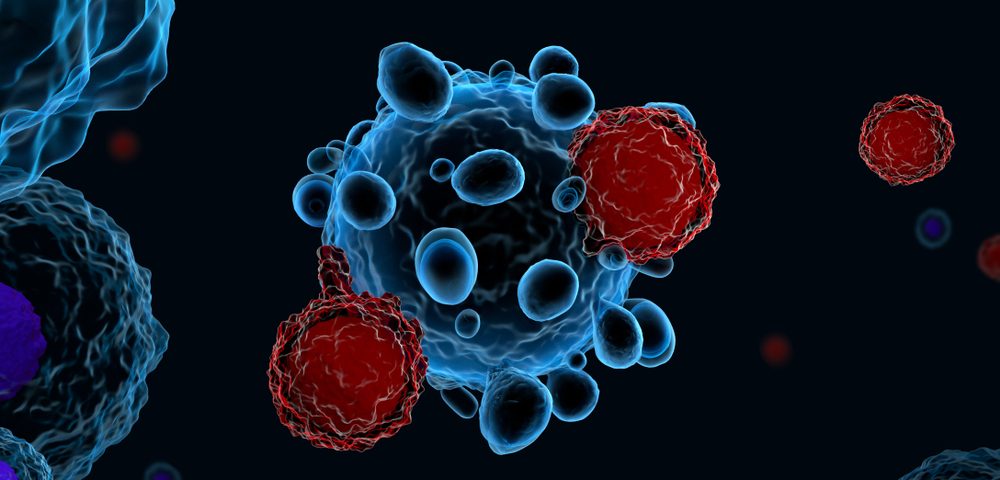A Phase 1 clinical trial assessing Amgen’s immunotherapy AMG 330 showed promising results in acute myeloid leukemia (AML) patients who received at least one prior treatment, the company announced.
AMG 330, given at 120 and 240 microgram (µg) doses per day, induced a complete tumor response in two patients and a complete response with incomplete blood count recovery in two additional patients.
The study, “A Phase 1 First-in-Human Study of AMG 330, an Anti-CD33 Bispecific T-Cell Engager (BiTE®) Antibody Construct, in Relapsed/Refractory Acute Myeloid Leukemia (R/R AML),” was presented at the American Society of Hematology (ASH) 2018 Annual Meeting, that ran Dec. 1-4 in San Diego, California.
AMG 330 is a type of immunotherapy that brings cancer cells closer to immune cells. The agent is made using Amgen’s proprietary BiTE or “bispecific T-cell engager” technology and consists of two antibodies fused together that target the CD33 protein in AML cells and the CD3 protein at the surface of T-cells.
Amgen is developing several BiTE immunotherapies as “off-the-shelf” therapies for a wide range of blood and solid tumors.
The Phase 1 trial (NCT02520427) — still recruiting participants in seven sites across the U.S., Germany, and the Netherlands — was designed to determine the maximum tolerated dose and the best dose of AMG 330 for relapsed or refractory AML patients.
Preliminary measures of effectiveness — including objective response rate, duration of response, time to disease progression, and time to response — also were assessed as secondary goals.
Patients received escalating doses of AMG 330 — between 0.5 to 480 µg daily — given as a continuous infusion in cycles lasting two to four weeks, followed by one to four weeks off treatment. In total, researchers tested 12 doses, each given to three to six patients.
Patients in the trial had received a median of four prior treatments, and were given a median of one treatment cycle.
Two patients achieved a complete response at the dose of the 240 µg/day. Two other patients also achieved complete response, although with incomplete blood count recovery, one at 240 µg/day and the other at 120 μg/day dose. The complete responses, however, were not maintained beyond one cycle of treatment.
Most (89%) discontinued treatment due to disease progression. The other reasons were adverse side effects in six patients — two of which were treatment-related — and patient requests.
Serious side events were reported in 73% of patients, with the most common being cytokine release syndrome (a systemic inflammatory response), fever due to low neutrophil levels, pneumonia, low white blood cell counts, fever, low platelet levels, and subdural hematoma.
Two patients died during the study, one due to AML progression and one as a result of intracranial hemorrhage, but both deaths were deemed not related to treatment.
“The majority of adult AML patients will not be cured with standard chemotherapy, underscoring the need for innovative treatment options for those who have relapsed or are refractory to currently available treatments,” Farhad Ravandi, MD, said in a press release. Ravandi is professor of medicine at the University of Texas – MD Anderson Cancer Center and the trial’s lead investigator.
“These early data are encouraging as they indicate AMG 330 may have anti-leukemic activity in heavily pretreated patients with relapsed or refractory AML, validating the need for continued evaluation of the BiTE®platform in targeting CD33,” Ravandi said.


